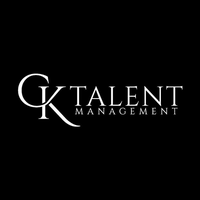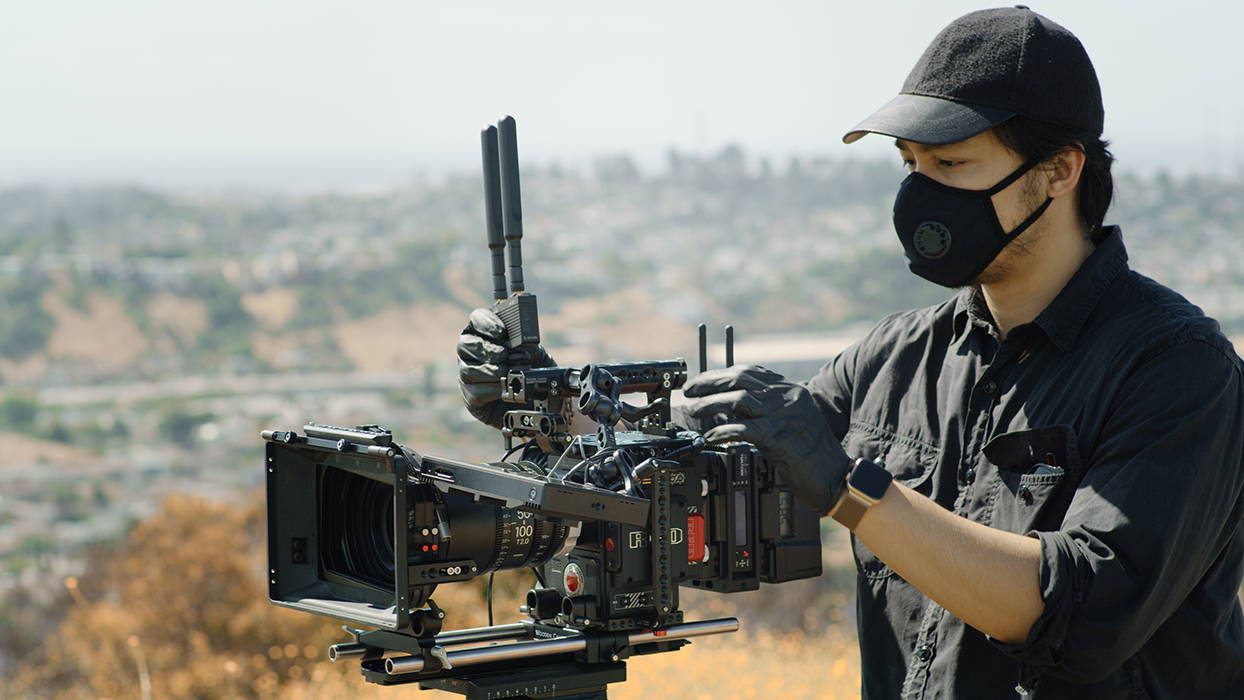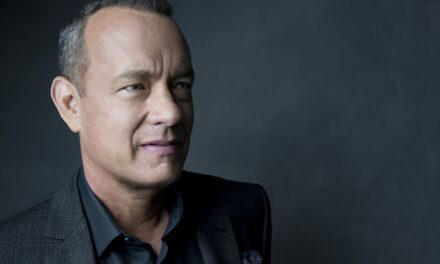Exclusive Interview: Craig Rogalski, Owner of Leading Talent Management Company
Craig Rogalski is the owner of CK Talent Management, one of the most esteemed talent management companies in the nation. Rogalski and his team work with athletes, influencers, models, and actors who have worked on diverse projects from the award-winning film Ladybird and cultural-phenomena The Bachelor. Though originally an agency based in the United Kingdom, CK Talent Management has recently purchased the largest talent agency in Africa and expanded into Australia to truly become an international talent management company.
Talent and producers have called him a “Barracuda.” Publications have called him one of the top talent managers in the business. But to Craig Rogalski, these titles aren’t important. What is important to him is making the talent he represents happy. In this Sophia News interview, Rogalski discusses his company, his no-nonsense philosophy, and his dedication to the talent he represents.
This interview was conducted via Zoom.


“I love seeing the look on talents’ faces after I’ve just negotiated a great deal for them, but more than that, I love creating a safe space for talent to hone their craft. A lot of how talent is managed is approached in an old way—”you do what I tell you do, you wear this,” that sort of thing. They don’t let talent be talent, and that’s what we strive to do.”

Sophia News: Tell us a little about your journey to your career path.
Craig Rogalski: It actually happened by accident. I had a couple sports athletes I was working with and they wanted to make the Olympic team. One was actually going to be on skeleton team, and he came to me and said “We know you negotiate things well, and can you help us out?” After that, slowly more people came to me, starting with different athletes, then actors and more.
SN: What inspired you to go into talent management?
CR: It mostly started with the people who came to me asking for help. I really like helping people in this capacity. It gets me excited to wake up every day. There are so many different things happening and with so many different opportunities. I love seeing the look on talents’ faces after I’ve just negotiated a great deal for them, but more than that, I love creating a safe space for talent to hone their craft. A lot of how talent is managed is approached in an old way—”you do what I tell you do, you wear this,” that sort of thing. They don’t let talent be talent, and that’s what we strive to do.
SN: What would you say is the difference between talent management and a talent agent?
CR: I’ll put it like this: when you’re on a car lot you have cars salesmen and managers. The salesmen doesn’t care if it’s a Lexus or an Acura, they just care about selling the car. On the other hand, the manager of the car lot cares about selling the largest number of cars and keeping the business alive. Agents are the salesmen. They care more about getting the job. Management is about the longevity of the talent’s career.
SN: What are some major changes in the industry since your early days of agenting?
CR: Managing as a whole has changed a great deal, but there honestly weren’t a lot of changes until Covid. Since it started, everything has changed and evolved. Five years ago, we changed to work with smaller production companies and streaming services. Streaming services are dominating right now, so these smaller production companies are doing well. The industry used to be dominated by these big production companies, but it is really influenced by grassroots company.
It’s like this for streaming services: You can go to Ruth Chris and buy an eight dollar hamburger that’s pretty good, but you could only get a few since they are expensive. But if you go to McDonald’s, you can get a similar burger that costs one dollar, so you can buy 20. Content drives streaming services, so they buy as much as they can. Having the widest variety of content at the cheapest prices, and turning out that content faster, makes the people happy.
This time, I have a question for you. When you watch network television, who do you think is the most important factor to them?
SN: I would guess advertisement.
CR: Advertisement is most important. Network television doesn’t care about the viewers. They just look at trends and the marketplace and summarize that. But when you go on Netflix and click Gilmore Girls, they are tracking you. They know how many people have watched it that day, and they know exactly how popular that specific episode is. On streaming services, the content they turn out is for viewers, not advertisers, because what encourages you to stay and pay if they don’t like it? That’s why there’s a rise in streaming services from network television channels. They realize the streaming is in.
Another thing that is fascinating about these services is this is end of these large revenue talent managers/agents—and it wouldn’t have happened without Covid. Streaming services want to work with smaller production companies, so talent managers can’t suck out those big commissions like they used to be able to. The revenue is a lot smaller. Production companies like that aren’t going to pay Angelina Jolie five billion to be in a movie, so her manager wouldn’t get as big of a commission.
CR, con’t.: This has led some of the alphabet soup talent companies to have breakups. Some talent managers have left and started their own boutique companies, so there is a big shake-up in the industry. People are saying “you have super agents who aren’t going to earn 40 mil anymore,” so salaries have to adjust to this.
During this time, writers have been able to continue creating a lots of material, but actors are leaving the industry. I read an article that said something like 40% of actors have left the industry to go back to school or to other careers, because they need to support themselves. Now they’re making money in these other careers and aren’t coming back, but since writers are making this content that production will pick up, there will be a shortage of actors. This means that production companies will look at what was viewed as lower tier slots– actors who would have never been viewed before. The actors who stuck with it are going to make out like bandits and will dictate how things get done. I actually just negotiated a project with so many additional terms for the actor. Our legal team said “there’s no way the production company will agree to this” but they said okay. These days, actors have leverage, and they need sophisticated Talent Managers to help them now more than ever.
SN: What makes CK Talent Management stand out from other talent agencies?
CR: Part of what I already mentioned—we let talent be talent. We work with talent to develop their careers. One of the things I always say is “I’ll burn down my f***ing company before you take advantage of my talent.” I just won’t let it happen. I also won’t let anyone lie to talent—if anyone at my company does, they are immediately fired. It’s important for me to be straightforward with my clients. I had one who was in Ladybird and asked if I watched it, and I told her that I didn’t like it so I turned it off. Being honest with them is one of the most important aspects of our business.
We also put a lot of passion in what we do, and we don’t put ourselves in front of the talent. The talent always comes first. Sometimes, on a small project, we won’t even take a commission. If they only made $500, I’m not going to take $50 of that. I tell them to go buy their kids a happy meal instead. It’s not just about the money, it’s about moving the client’s career forward. Another thing I say is when talent goes on stage that’s their art, but my talent is my art. They are my Picassos.
I’ve even been approached by people who represent big names in the industry who want to work with me because they trust me and the work I do. Another talent manager approached me because they wanted to be properly represented too. They said they can manage their clients, but they’re not sure how to manage themselves. When another talent manager asks you to represent them, that’s huge.
We don’t do any recruiting– all our actors came to us. A lot of our team are people who have worked for major industry companies including Sony Pictures, ABC Network, Clinton Foundation, Viacom, Prada, MTV and even the former Captain of the University of
Massachusetts football team. The team have worked on the X-Men Franchise, Venom, the Goldbergs and their clients have included Janet Jackson, Celine Dion and the Chain Smokers. They work because they enjoy it and passionate about what they do. At the the other places they worked, they didn’t have the ability to exude their passion. I run staff like I run talent– I let them do what they do. A man we call our “Rain Man” runs the Creative Department. He was interviewing TikTokers, and he gently asked if he could take those meetings on his own. I said “Oh you don’t the old man in the meetings…lol” A lot of other agency heads would have responded to him “NO, I have to be there,” but I get it. A lot of those younger TikTokers don’t want to work with someone who is older, and that’s why our Creatives Department is made up of staff similar in age to those it represents. So now I can go back to what I do and let him and his team do what they do best.
We actually don’t use words like “boss” and “supervisor”—we operate as a sort of Borg Collective, if you’re familiar with Star Trek. I let them do what they need to do and I support them. They are very receptive of this treatment. Communication is super important— we know when to communicate and when to leave people alone to live their lives. All agency Talent have my contact information and can contact me whenever they need to whether I represent them on my personal roster or not, and I always get back to them should the need me. I feel that’s another thing of what makes us different than other agencies.
SN: Why don’t you watch your talents’ shows?
CR: I won’t say I never watch their shows, but I don’t watch a lot of them because I don’t want to lie to them. It’s like if you have kids and they show you a finger-painting, you don’t tell them their finger-painting is crappy even if it is. And a lot of television is actually ruined for me because I know the sides for them thanks to auditions. I’ll be watching something and I’ll know what is said word for word in a scene because I saw their auditions so many times.

SN: Do you represent any specific type of talent?
CR: We have recently opened small recording artist and scriptwriting portfolios, but I mostly represent actors in the agency. The creatives department does modeling, reality television stars, youtubers, TikTokers, and network executives. We actually represent the owner of RT Television, a major network in Russia.
CR: How has the industry, and the company, adapted to the Covid-19 pandemic over the past year?
SN: The interesting thing is we used to be a brick-and-mortar establishment, but many years ago we decided to become a virtual agency, so it was in good timing. Another thing that is interesting to note, is I have not met 80-90% of my talent face to face. We’ve spoken on the phone or met over Zoom, but not face-to-face. I’m actually firmly adamant about not representing anyone near where I live geographically. I don’t want to run into them when I’m at the grocery store. US Magazine once called me the most elusive agent in the industry. I like to keep private life private. I’m happier going to Home Depot than going to a red carpet. My happiness is making others happy, not being in limelight.
I run the acting division, and production companies have come to me and said I am a joy to work with because I do not have the ego that other Hollywood types have. A producer in Ohio told me an actress I released, because she wanted to leave the industry, came to him and asked if her contract was still valid to be in the film. He told her that he would only hire actors represented by our agency, upon which he cancelled the contract with her. Production companies like to work with us because they know that they are getting quality talent, who will not be problematic on set, and will do their job, and who care about their craft.
SN: What role does philanthropy play in your life, as well as in the life of your agency?
CR: It is important to my family. We started a British charity called Rogalski Foundation, and I was also the State Director for Stand Up for Kids.
SN: What do you know about the industry now that you wish you could have told yourself when you first started?
CR: That’s a tough one! It’s a cutthroat industry, but I knew that. I think it would have be that I know now more about how awful talent are treated in the industry. I’ve adopted this as part of our mission statement, which is for this agency to be a safe place for talent. In the past this was thrusted upon me when a talent came to me after being taken advantage of in a serious way, while being represented at another agency. Even though I just signed them, and it wasn’t our problem as an agency, I advocated for them against the larger well established company where this happens because I felt it was the right thing to do.
SN: What advice do you have for young people today trying to break into film and television as actors or actresses?
CR: If you’re patient, you’ll persevere. If you’re not patient, you won’t persevere. It takes time. If you want to go from 0 to 100 and think you’ll be Zac Efron overnight, you won’t. We tell actors it’s like selling girl scout cookies. You knock on many doors, and there are a lot more “no’s” than “yes’s,” but eventually someone will say “sure, I’ll have a box of Thin Mints.” With patience you’ll persevere. People breaking in to this industry should know that things take time and careers take span over a period of years not months or days.
MORE INSPIRING STORIES
Related
7-Year-Old with “Incurable” Condition Overcomes Her Diagnosis
When Evie-Mae Geurts was just a few months old, she was registered as blind. It’s a difficult prognosis for any parent to hear, that their child will live a more challenging life than others. It’s hundreds of times more difficult when that diagnosis is compounded with...
Anonymous Donor Pays Off Tuition for Graduating Class at Wiley College
Graduation is an equally exciting and terrifying time for many college students. While the time should be spent celebrating the massive achievement, many are fraught with worries of the future—namely, how they are going to overcome the debt they’ve accumulated. Wiley...
Bartender Saves Family from Rip Current
Cape Town, South Africa, is well-known as a tourist destination in part for its gorgeous beaches. People travel to the area for its nature, its culture, and maybe to end the day with a drink on the water. That is precisely how Clair Gardiner and her daughter, Arya,...

Join
Subscribe
GET INSPIRATION & BEAUTY RIGHT IN YOUR IN BOX!








